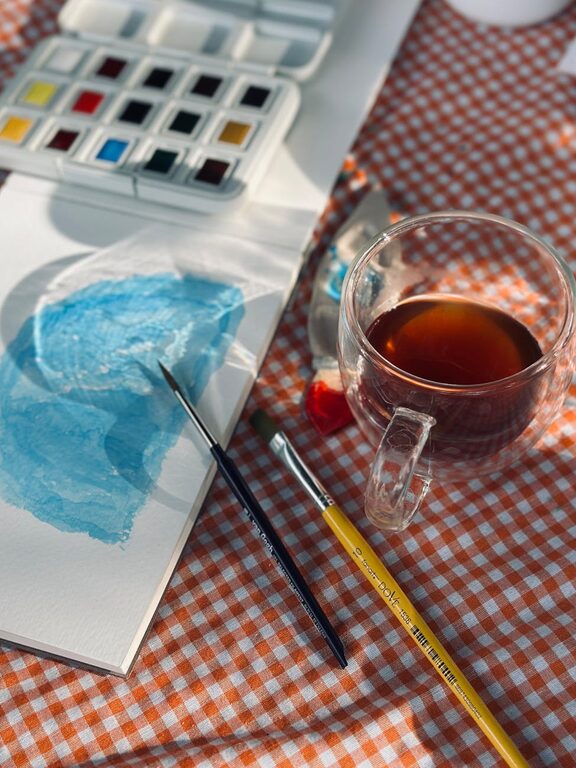Simple Ways to Practice Creativity Every Day
Creativity is often seen as a special skill reserved for artists or inventors, but in reality, it’s a trait we all have and can develop. Practicing creativity every day can unlock new ideas, improve problem-solving, and add excitement to your routine. The good news is that you don’t need to be an expert or dedicate hours; small, intentional habits can make a big difference. Here are simple and practical ways to practice creativity every day.
Why Practice Creativity Daily?
Before diving into the tips, it’s helpful to understand why daily creativity matters. Like any skill, creativity thrives with regular use. When you make it part of your routine, it becomes easier to think outside the box, experiment without fear, and connect ideas in fresh ways. Creativity is not just about art—it helps in work, relationships, and even managing daily challenges.
Simple Daily Practices to Boost Creativity
1. Keep a Creativity Journal
Writing or sketching in a journal can be a low-pressure way to explore ideas. Dedicate a few minutes each day to jot down thoughts, doodles, or observations. Don’t worry about quality or structure—this space is for free expression. Over time, you’ll notice patterns and inspiration that can lead to bigger projects.
2. Change Your Routine
Shaking up your daily habits can spark new ideas. Try a different route to work, rearrange your workspace, or take a new type of exercise. These small changes help your brain make fresh connections and break the monotony that stifles creativity.
3. Set a Daily Creative Challenge
Give yourself a small, manageable challenge each day. It could be writing a six-word story, sketching an object in your room, or coming up with three new uses for a common item. These challenges encourage playful thinking and help you practice generating ideas quickly.
4. Use Mind Mapping
Mind mapping is a visual technique for organizing ideas. Start with a central theme or problem and branch out with associated words or images. This method allows you to see connections you might otherwise miss and can lead to unexpected insights.
5. Limit Your Screen Time for Creativity
While digital tools are helpful, spending too much time on screens can limit creativity. Set aside tech-free periods to read books, walk outside, or simply daydream. These moments let your mind wander, which is vital for creative thought.
6. Collaborate and Share Ideas
Talking with others about your ideas can open new perspectives. Join a creative group, attend workshops, or simply discuss your thoughts with friends. Collaboration often leads to richer ideas and helps overcome creative blocks.
7. Embrace Mistakes and Experiment
Creativity involves trial and error. Allow yourself to make mistakes without judgment. Experimentation is a powerful way to learn and evolve your ideas. Remember, some of the best inventions and artworks came from happy accidents.
8. Practice Mindfulness and Observation
Being present helps you notice details and inspiration around you. Whether it’s the way light falls on a leaf or the sound of rain, mindfulness sharpens your senses and fuels creative ideas. Try spending a few minutes each day observing your environment without distractions.
Creative Activities to Include in Your Day
– Drawing or Coloring: Even simple doodles can stimulate creative thinking.
– Writing Prompts: Respond to a daily question or theme to spark storytelling.
– Photography: Capture interesting scenes or objects from your surroundings.
– Cooking New Recipes: Experimenting with flavors can be a fun creative outlet.
– Crafting: Try making something with your hands using materials you have at home.
Encouraging a Creative Mindset
In addition to activities, nurturing a creative mindset helps ensure long-term creativity. Here are some tips:
– Stay curious and open to new experiences.
– Celebrate progress, not just results.
– Avoid self-criticism; focus on exploration.
– Make creativity a priority in your schedule.
– Surround yourself with inspiration, like books, art, or music.
Final Thoughts
Creativity is not a gift reserved for a few—it’s a skill anyone can develop with a little effort. By integrating simple practices into your daily life, you can nourish your creative side and enjoy greater satisfaction in your personal and professional activities. Whether you spend five or fifty minutes a day, the key is consistency and openness to new ideas. Start small, have fun, and watch your creativity grow!


